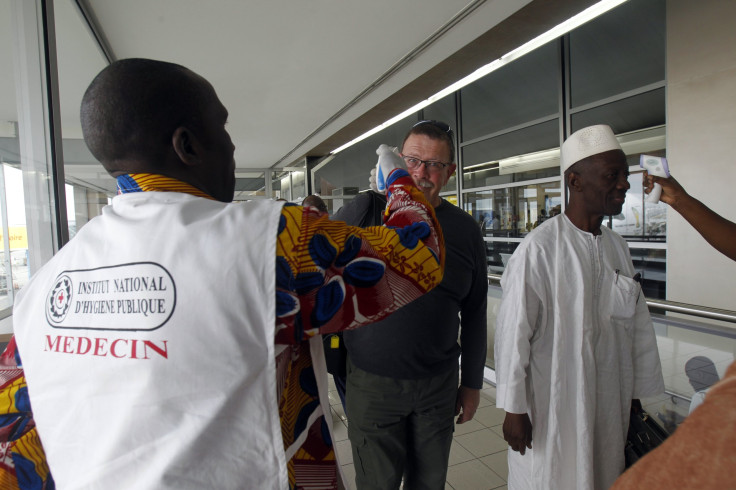Ebola Outbreak: Guinea Declares Emergency As Overall Deaths From Ebola Rise To 1,069

Guinea, one of the worst-hit West African nations in the ongoing Ebola outbreak, announced a state of emergency Wednesday. The World Health Organization, or WHO, also said that four new people died in Guinea between Aug. 10 and Aug. 11.
The total death count in Guinea from the latest epidemic was estimated at 377 by WHO while the number of cases reported had risen to 510. Overall, the number of deaths has gone up to 1,069 while the number of infected cases has risen to 1,975, WHO reported.
The statement from Guinea's government declaring a state of emergency reportedly added that its administration will follow a series of nine measures, including stricter controls at checkpoints and hospitalizing suspected patients until reports confirming their health status are released. The current Ebola outbreak was first detected in Guinea, in the beginning of the year, and since then has spread to other West African nations, including Liberia, Sierra Leone and Nigeria, all of which have declared an emergency to cope with the health crisis.
“The World Health Organisation has declared a global health emergency over Ebola. Considering that Guinea is a signatory to the WHO constitution I declare Ebola a national health emergency in Guinea," Alpha Conde, Guinea’s president said in a statement Wednesday, according to Agence France-Presse, or AFP, and added that people who were in contact with Ebola-infected patients were "formally banned from leaving their homes until the end of their surveillance period."
The statement added, according to AFP, that any person who violates the mandatory precautions "would be considered a threat to public health and will face the might of the law."
Last week, WHO declared the Ebola outbreak as an international health emergency and convened a panel of experts on Monday to discuss if the use of experimental drugs, such as ZMapp, is a viable treatment option.
Earlier this month, two Americans -- Kent Brantly and Nancy Writebol -- were airlifted from Liberia to Atlanta’s Emory University Hospital, after contracting the virus. The two patients are being treated with ZMapp, which until before the outbreak was not tested on humans.
On Tuesday, a Spanish priest, Miguel Pajares, who was in a Madrid hospital after contracting the disease in Liberia, died before ZMapp, which is not yet commercially produced, could be used to treat him. And, while doctors treating the American patients have not attributed their recovery to ZMapp, demand for the drug has increased.
Ebola spreads from exposure to infected blood and bodily fluids, and initial symptoms include the sudden onset of fever, intense weakness, muscle pain, headache and sore throat, according to WHO.
© Copyright IBTimes 2024. All rights reserved.






















